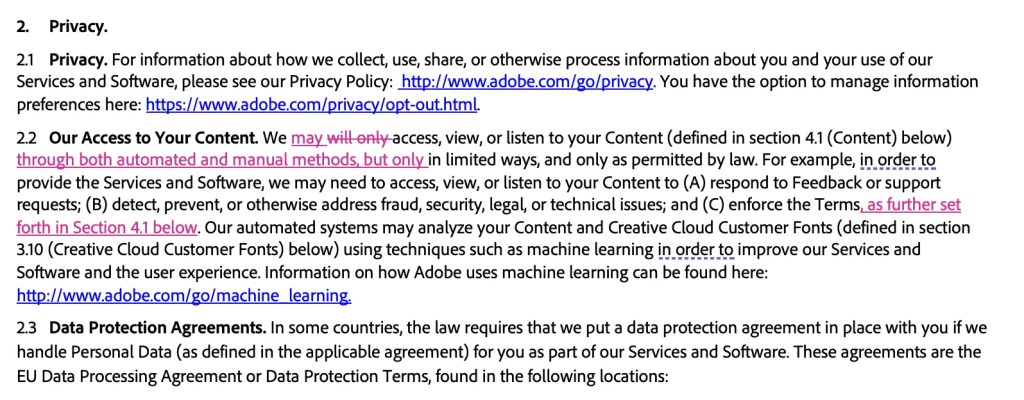
Adobe, a leading software company, has recently updated its terms of use, causing controversy among its users. The new terms allow Adobe to access and analyze user content for developing future products using machine learning tools. This has raised concerns about privacy and ownership of creative work.
According to the facts from various sources,
- Adobe does not train its Firefly Gen AI models on customer content.
- The company will never assume ownership of a customer's work.
However, some users are still uneasy about the new terms. They fear that their creative work could be used without their consent or opt-out ability. This has led to a backlash against Adobe, with many expressing frustration and concern on social media.
Adobe's Chief Strategy Officer, Scott Belsky, has responded to the issue by stating that the company does not train any GenAI models on customer content and has tight security around access to customer content. Jérémie Noguer, Substance 3D ecosystem's Product Director, also commented that Adobe is not accessing or reading users' projects in any way.
Despite these assurances, some high-profile pros and users remain skeptical. For instance, Hollywood filmmaker Duncan Jones and Sam Santala from Songhorn Studios have expressed their concerns about the new terms. They argue that the lack of transparency around how Adobe plans to use user content is a major issue.
The controversy comes at a time when there is growing concern about data privacy and ownership in the tech industry. It highlights the need for clear communication from companies about how they collect, store, and use user data.




